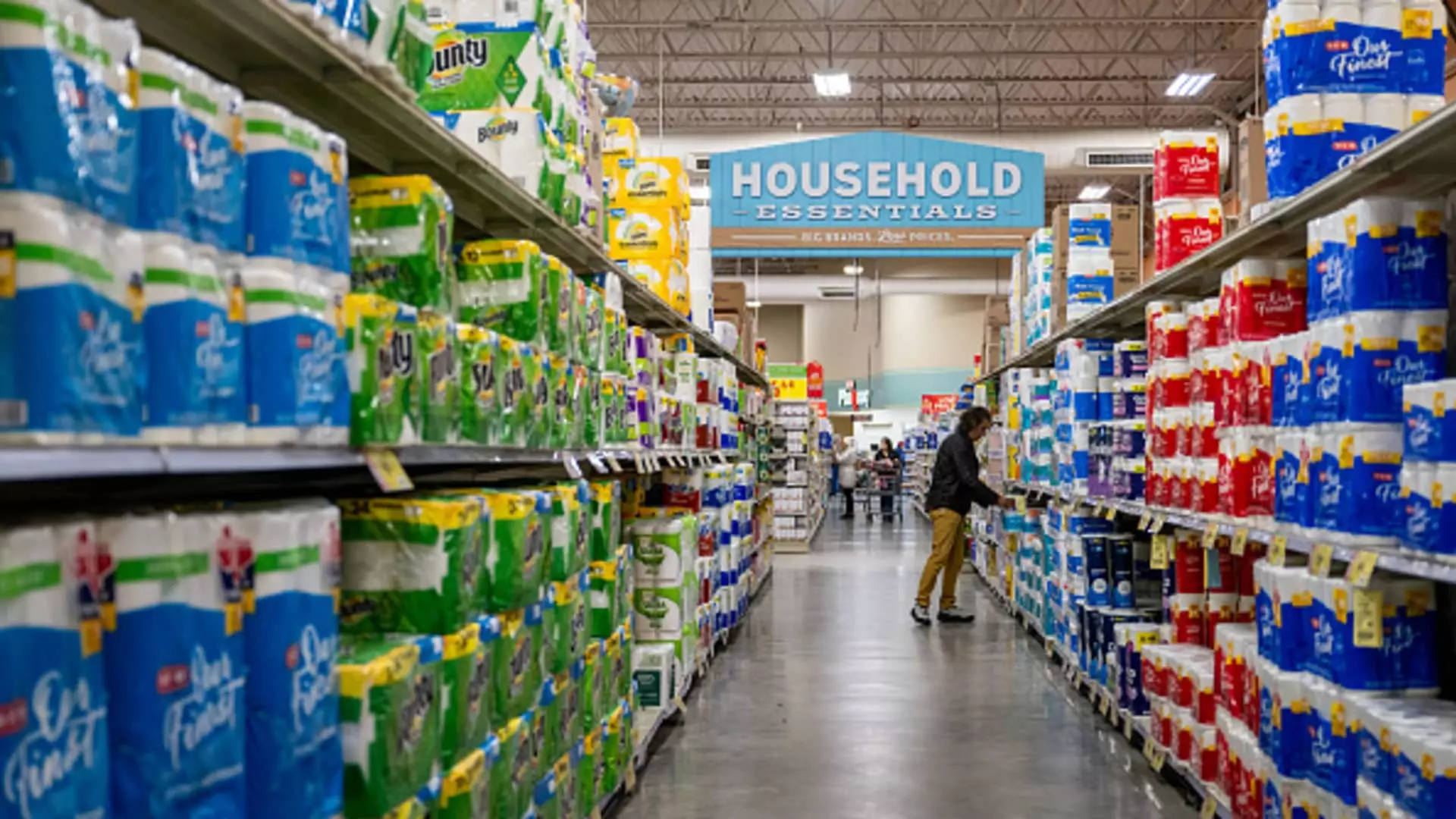As we enter a new phase of the Trump administration’s economic policies, consumers are bracing themselves for a wave of increased prices on everyday items. Symbolically tied to the so-called “America First Trade Policy,” these new tariffs slated to take effect target imports from over 180 countries. However, the optimism surrounding this initiative is overshadowed by a disturbing potential reality: grocery bills might skyrocket for staples like coffee, bananas, vanilla, and even toilet paper. This situation illustrates many of the flaws inherent in an isolated economic approach that lacks a comprehensive understanding of the domestic supply chain.
Access to affordable goods is a right that many Americans take for granted, but the Consumer Brands Association warns that the tariffs will force manufacturers to hike prices, ultimately leading to a more burdensome shopping experience. It is undeniably attractive to promote domestic job growth, yet the reality is that crucial materials still need to come from outside our borders. This disconnect raises the question: at what point does protecting local industries become harmful to the very consumers we strive to support?
The Irony of American Agriculture
Intriguingly, the U.S. agricultural system is proving to be an impediment rather than an asset under these tariffs. The Consumer Brands Association points out that critical dietary staples like coffee and tropical fruits are simply not cultivated on American soil due to unfavorable climatic conditions. In fact, Guatemala supplies nearly 40% of the bananas consumed in the U.S., making it a cornerstone of our daily diets. Yet, with the introduction of a 10% tariff on these imports, consumers face a troubling reality—they may have to dig deeper into their pockets for something as commonplace as bananas.
Similarly, vanilla, already regarded as a luxury spice, has seen significant price fluctuations over the years. With imports from Madagascar likely to incur a staggering 47% tariff, the consequences of protectionist policies ripple through kitchens nationwide, impacting not just professional chefs but amateur home cooks as well. The sheer irony is difficult to ignore: we are risking higher costs to safeguard manufacturing jobs in a landscape where our agricultural outputs can’t keep pace with consumer demands.
The Impact on Household Staples
Tariffs don’t stop at food. Daily hygiene products and household staples also stand to take a hit. The convergence of tariffs on raw materials like wood pulp, shea butter, and palm oil poses a dual challenge: manufacturers will likely pass the added costs onto consumers, and various everyday items—from toilet paper to diapers—will see price increases. The 32% duty imposed on palm oil imported from Indonesia serves as a prime example of how broadly the impacts of these tariffs reach.
Investors may fleetingly embrace stocks in the consumer staples sector as a safety measure against economic turbulence, but this market trend reflects an unsettling reality: the welfare of the average consumer is being sacrificed for theoretical market advantages. Families who are already financially stressed now have to contend with increased rates for basic hygiene products.
The Fallacy of Tariff-Driven Economic Revival
There is a pervasive notion that protectionist policies will reinvigorate American industries and restore lost jobs. Yet many experts argue that this belief is based on dangerously flawed logic. New tariffs do not simply create jobs; they often disrupt existing supply chains that are intricately woven into a global fabric. Companies, including giants like Procter & Gamble and Coca-Cola, depend on imports for specific ingredients vital to their production processes. The CBA’s call for exemptions highlights a glaring contradiction within the “America First” narrative—how can we genuinely support U.S. companies if we fail to consider their operational realities?
In an atmosphere where more than 90% of oats used for cereal production in the U.S. are imported from Canada, we are left with a staggering realization: years of agricultural neglect have turned against us. By consistently dwindling domestic production capabilities, we find ourselves at a systemic disadvantage, which only enhances the risk posed by these tariffs.
As the landscape continues to shift, we have to scrutinize our choices critically. Tariffs may save some jobs temporarily, but at the cost of everyday essentials that consumers rely on. The impending rise in prices serves as a chilling reminder of how intertwined global markets are and how ignorance of these connections can lead to unintended, yet profound discontent amongst American families. Rather than serving the public good, these policies risk alienating the very people they purport to protect.

Leave a Reply